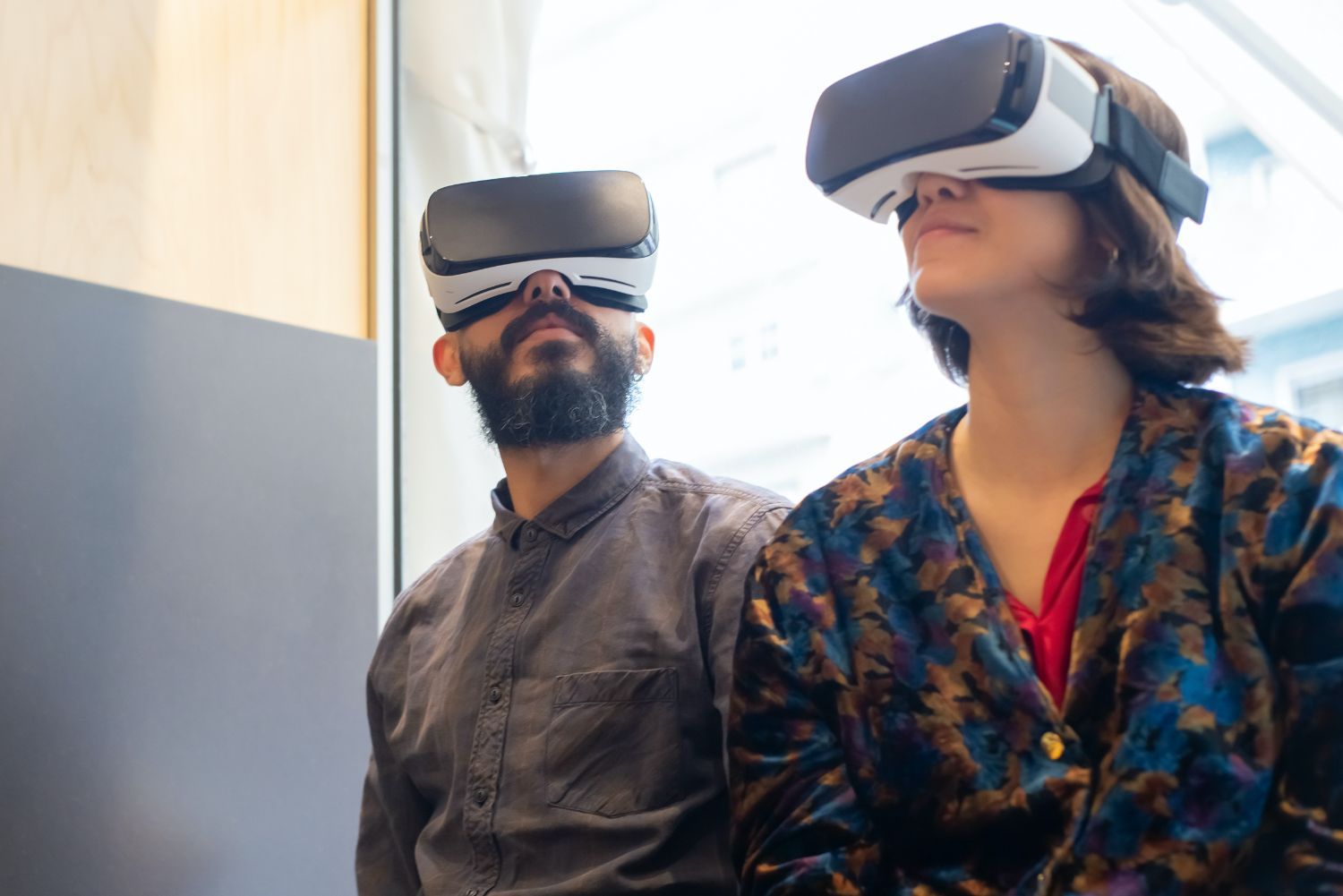Two couples are making headlines for holding virtual, “metaverse” weddings, in addition to their real ceremonies. Since Mark Zuckerberg’s announcement that Facebook, Inc. would be renamed Meta, debates have raged over whether the metaverse will be a boon or a curse for society. As with any new technology, the metaverse is likely to be a mixture of both. When it comes to relationships, however, this powerful blend of virtual and augmented realities will likely exacerbate some of the existing issues we have with social media. Alienation and attention issues are the least of its possible impact. Virtual relationships, driven by novelty and abstraction, are opposed to the constancy and intimacy real life relationships require. In the case of marriage, these are non-negotiable. However, it’s easy to imagine that some will argue to validate virtual unions in the coming years as the metaverse and similar technologies expand.
Mingling in the Metaverse
People are already wondering how we will foster connection and belonging in the metaverse, so that the virtual world is “not only as good as our ‘real world’ but possibly even better.” While the metaverse might offer some opportunities to get to know people in a simpler, easier way, cultivating relationships in the real world is long and messy. To really encounter another human being means being seen and known by them just as you see and know them. It means risking comfort and security with each new or continuing connection. This requires vulnerability, of course, but also virtues of persistence and courage. In the metaverse, human relationships may not only be uploaded into virtual reality, but only exist in virtual reality. Real life relationships may also be affected by augmented reality, as the use of computer-generated inputs to alter the environment and “enhance” a user’s experience of the physical world may ultimately distract them from it, or even worse, lead them to rely on computer inputs for satisfaction. If our easy distractibility through handheld devices already adversely impacts our relationships, then surely technologies which seek to manipulate the physical world will too.
“Meta” Marriages
We know that marriage is, by definition, a lifelong, comprehensive union between a man and a woman for their good and that of their children. Marriage is not just a joining of minds or of hearts, but a fruitful joining of bodies and physical lives. Spouses live together for a reason – to see each other in little moments of the day, alone or with the rest of their family. We know that living apart, living like roommates or strangers is not the end goal of marriage. We know that wives and husbands don’t appreciate when their spouses have replaced face time with screen time. The very term “meta” seems to suggest that future technology will enable us to not only transcend the boundaries of our physical world, but to toy with them. Ironically, the term (not the prefix) “meta” has also come to mean “self-referential” – not the sort of disposition needed for a real relationship, let alone a marriage based on mutual trust and self-gift.
Virtual Unions are Just That – Virtual
While some states allowed weddings to occur through Zoom, FaceTime, and Skype during the pandemic, most still do not consider such marriages legal. Traci Gagnon, whose “marriage in the metaverse” was covered by the New York Times, even admits that virtual ceremonies, while they may “have a place in some circumstances, such as with military officers who are out of the country,” thinks that weddings are “one of the very few things that you can’t just do via a television screen.” And she’s absolutely right. At this juncture, most people aren’t looking to get married in the metaverse (at least without a complementary real-life wedding) because most people want the ceremony, the flowers, dresses, suits, and presence of family and friends to celebrate. Virtual unions are just that – virtual. Without the physical aspect, they run the risk of being reduced to a mere idea, or whim, rather than a commitment. Past redefinitions of marriage may not have affected the general notion that marriage is between two people in real life, but the metaverse may challenge that status quo – which means we’d better defend the comprehensive nature of marriage with even greater verve.







